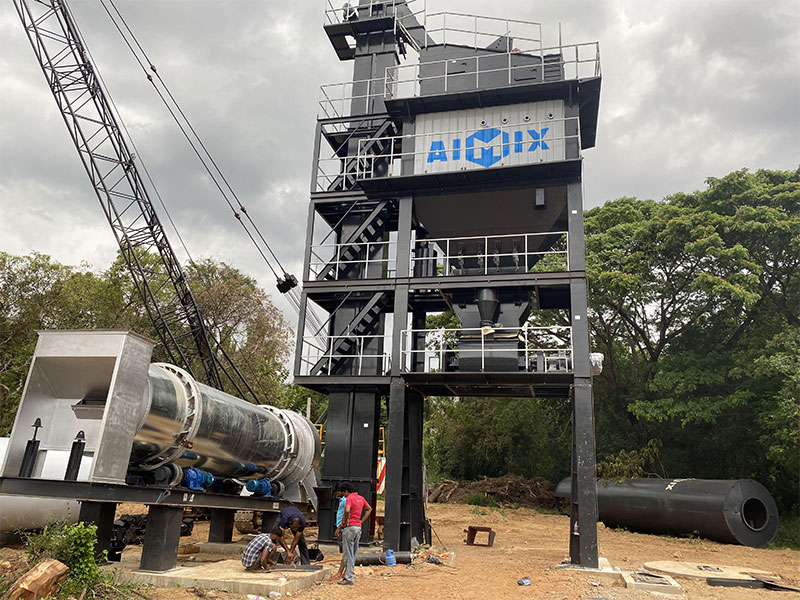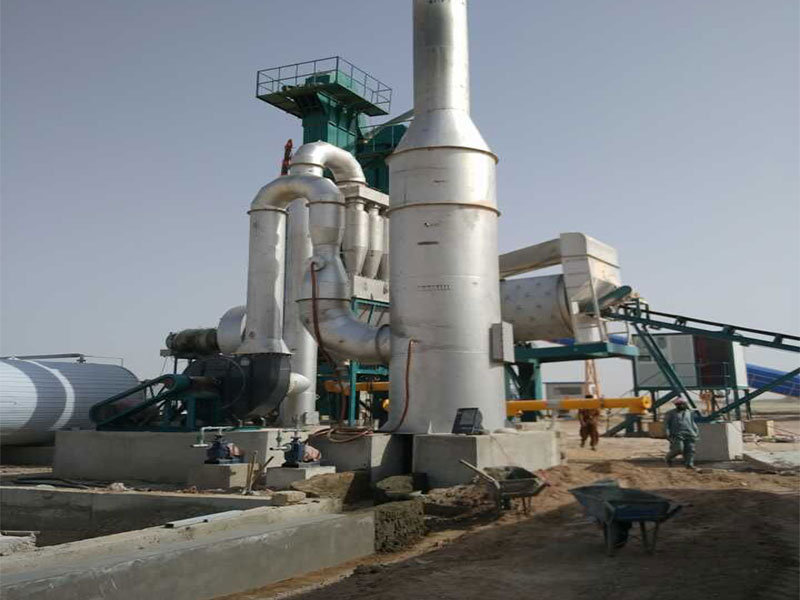Asphalt plants play a crucial role in the construction industry, producing the asphalt mixtures used for paving roads, highways, and other infrastructure projects. However, the production process of asphalt plants can generate waste in the form of excess materials, energy consumption, and environmental impact. Minimizing waste in the production process is not only essential for improving efficiency and reducing costs but also for promoting sustainability and environmental stewardship.
1. Efficient Material Management
Effective material management is key to minimizing waste in the production process of mini asphalt plant. This includes optimizing the use of raw materials such as aggregates, asphalt binder, and additives to ensure that only the necessary amounts are used for each batch of asphalt mixture. By accurately measuring and proportioning materials based on mix design specifications, asphalt plants can avoid overuse and waste of materials, leading to cost savings and environmental benefits.

2. Proper Storage and Handling
Proper storage and handling of raw materials are essential for preventing waste and maintaining material quality in asphalt production. Aggregates should be stored in designated stockpiles and protected from contamination and moisture to preserve their gradation and quality. Similarly, asphalt binder should be stored in insulated tanks and maintained at optimal temperatures to prevent degradation and ensure consistent performance. By implementing proper storage and handling practices, asphalt plants can minimize material waste and maximize the utilization of resources.
3. Accurate Process Control and Monitoring
Accurate process control and monitoring are critical for optimizing the production process of asphalt plants and minimizing waste. Automated control systems and sensors can continuously monitor key parameters such as temperature, pressure, and mix consistency during production. By maintaining tight control over the production process and making real-time adjustments as needed, asphalt plants can ensure the uniformity and quality of asphalt mixtures while minimizing material waste and rework.
4. Recycling and Reuse
Recycling and reuse of reclaimed asphalt pavement (RAP) and recycled asphalt shingles (RAS) are effective strategies for reducing waste and conserving resources in asphalt production. RAP and RAS can be incorporated into asphalt mixtures as reclaimed materials, reducing the need for virgin aggregates and asphalt binder. By incorporating recycled materials into asphalt mixtures, the asphalt drum mixer plant can conserve natural resources, reduce energy consumption, and lower production costs while minimizing waste generation.

5. Energy Efficiency Improvements
Improving energy efficiency is another effective way to minimize waste in the production process of asphalt plants. Energy-intensive operations such as aggregate drying, asphalt heating, and mixing require significant amounts of energy, which can contribute to waste if not managed efficiently. Implementing energy-efficient technologies such as thermal insulation, heat recovery systems, and variable frequency drives can reduce energy consumption and operating costs while minimizing environmental impact.
6. Preventive Maintenance Programs
Preventive maintenance programs are essential for ensuring the reliable operation of asphalt plants for sale and minimizing downtime due to equipment failures. Regular inspection, lubrication, and replacement of worn components help prevent breakdowns and prolong the lifespan of critical equipment such as crushers, screens, dryers, and mixers. By implementing proactive maintenance practices, asphalt plants can minimize production disruptions, optimize equipment performance, and reduce waste associated with unplanned repairs and downtime.
7. Environmental Compliance and Sustainability
Environmental compliance and sustainability should be integral considerations in the operation of asphalt plants. Compliance with regulatory requirements for air emissions, noise levels, and water quality is essential for minimizing environmental impact and maintaining the plant’s license to operate. Additionally, adopting sustainable practices such as reducing emissions, conserving resources, and promoting biodiversity can enhance the environmental performance and reputation of asphalt plants while minimizing waste generation.
8. Continuous Improvement and Innovation
Continuous improvement and innovation are essential for staying ahead in the competitive asphalt industry and minimizing waste in the production process. Asphalt plants should continuously evaluate their operations, identify areas for improvement, and implement innovative solutions to optimize efficiency and reduce waste. By fostering a culture of continuous improvement and embracing new technologies and best practices, asphalt plants can achieve sustainable growth and minimize waste generation over time.
Conclusion
Minimizing waste in the production process of aimix group asphalt plants is essential for improving efficiency, reducing costs, and promoting sustainability. By implementing strategies such as efficient material management, proper storage and handling, accurate process control and monitoring, recycling and reuse, energy efficiency improvements, preventive maintenance programs, environmental compliance, and continuous improvement and innovation, asphalt plants can minimize waste generation and maximize the utilization of resources, leading to more sustainable and environmentally friendly asphalt production practices.